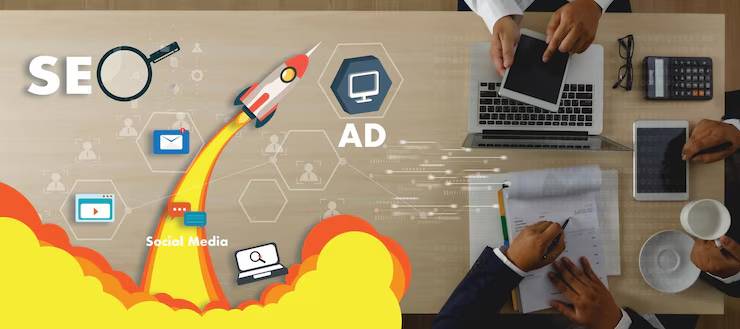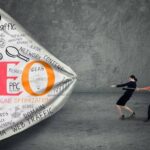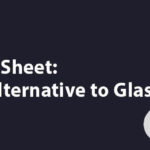Are you trying to grow your eCommerce store and wondering whether you should invest in organic SEO or paid ads? You’re not alone. This is one of the most common questions asked by ecommerce business owners. Both strategies can increase traffic and sales – but which one gives you a better return on your investment?
In this article, we’ll explain in simple terms the real difference between SEO and paid ads for eCommerce. You’ll learn how each works, what their advantages and disadvantages are, and when to use one over the other. We’ll help you decide the best digital marketing route based on your budget, goals, and growth plans.
Whether you’re starting a new store or expanding an existing store, this guide will help you make a smart, informed choice that will save money and deliver results.
What is Organic SEO for Ecommerce?
SEO (Search Engine Optimization) is the process of optimizing your eCommerce website to rank high in organic search engine results like Google. The goal is to attract free, high-quality traffic to your product and category pages.
Example: When someone types in “buy organic cotton t-shirts online,” SEO helps your store appear on top without paying for clicks.
Key Benefits of Organic SEO for Ecommerce:
- Long-term traffic growth
- Builds brand credibility
- Lower cost per conversion over time
- Better ROI in the long run
Do you want to learn about results-driven ecommerce SEO? Check out our ecommerce SEO services for more information..
What Are Paid Ads for Ecommerce?
Paid advertising refers to advertising where you pay platforms like Google, Facebook or Instagram to show your products to targeted users. You get instant visibility and traffic, but you have to pay per click or per impression.
Example: Google Shopping ads or Instagram product ads are common forms of paid ads for eCommerce stores.
Key Benefits of Paid Ads for Ecommerce:
- Instant visibility and traffic
- Easy to target specific audiences
- Great for promotions and product launches
- Flexible budget control
SEO vs Paid Ads for Ecommerce: A Detailed Comparison
Let’s compare both strategies on key decision-making points:
1. Cost and ROI
SEO:
- Content, optimization, and link-building require time and investment.
- Once ranked, the traffic is free.
- ROI improves over time as costs are reduced and visibility is increased.
Paid Ads:
- The costs start from day one.
- ROI is immediate, but can decline without proper optimization.
- Expensive in competitive areas.
Conclusion:
If you have a limited budget but want long-term growth, SEO is more cost-effective. If you need faster results, paid ads are suitable.
2. Speed of Results
SEO:
- It takes time (3-6 months) to see a significant increase in traffic.
- The results add up over time.
Paid Ads:
- Traffic instantly, often within a few hours.
- Good for quickly testing new products.
Conclusion:
Use paid ads for short-term goals. Invest in SEO for stable long-term growth.
3. Trust and Credibility
SEO:
- Users trust organic search results more.
- Top ranked stores are considered more trustworthy.
Paid Ads:
- If not done properly it can look like spam.
- Users often look for organic results, bypassing ads.
Conclusion:
SEO builds more trust, especially for new users getting to know your brand.
4. Click-Through Rate (CTR)
SEO:
- High CTR on organic listings, especially for product-related queries.
- Users prefer to click on organic results for informational or comparative searches.
Paid Ads:
- Search ads have low CTR unless they are highly targeted.
- Visual ads on platforms like Instagram can get high engagement.
Conclusion:
SEO generally gets more clicks for product searches, but paid ads can work well on visual platforms too.
5. Sustainability
SEO:
- Once your site is ranked, the traffic continues with little additional cost.
- Great for building authority over time.
Paid Ads:
- As soon as you stop paying, the traffic stops.
- High cost to maintain visibility.
Conclusion:
SEO is a better long-term investment. Paid ads are temporary.
When to Choose SEO for Ecommerce
Choose SEO when:
- You are building a brand and you need sustainable growth.
- You want to increase organic traffic.
- You are willing to wait 3-6 months for the results.
- You want a high ROI in the long run.
👉 Explore their eCommerce SEO packages tailored for every business size.
When to Choose Paid Ads for Ecommerce
Choose Paid Ads when:
- You are launching a new product or offer.
- You want instant traffic and conversions.
- You have a seasonal sale or limited-time event.
- You want to test new products or messages.
Best Strategy? Use Both — Smartly!
Here’s how many successful ecommerce stores do it:
- Start with paid ads to get instant response and sales.
- Along with this, start SEO to build long term traffic.
- As SEO progresses, gradually reduce ad spend.
Suggested Workflow:
- Launch ads for new products.
- Collect data on the best-performing keywords.
- Use those keywords in your SEO strategy.
- Create product guides, blogs, and landing pages.
- Over time, let SEO drive 70-80% of your traffic.
Final Thoughts: Which One Drives Better ROI?
There is no one-size-fits-all answer. But here’s a general rule of thumb:
- Short term, rapid growth? – Go with paid advertising.
- Long-term, sustainable growth? – Invest in SEO.
- Best ROI in 6-12 months? – Combine both with a smart strategy.
Want expert help? Our team at Samyak Online offers ecommerce SEO services and affordable ecommerce SEO packages that deliver real results.
👉 Ready to grow your traffic and rankings? Get Your Free SEO Audit Report!
Frequently Asked Questions (FAQs)
Q1. Is SEO or Paid Ads better for a new ecommerce website?
Paid ads give you immediate traffic to your new store, but investing in SEO upfront helps build long-term visibility and reduce ad spend over time.
Q2. Which is more cost-effective: SEO or Paid Ads?
SEO is more cost-effective in the long term, while paid ads are more expensive but provide quicker results.
Q3. Can I do both SEO and Paid Ads at the same time?
Yes, many ecommerce businesses use both to balance short-term profits and long-term growth.
Q4. How long does it take for ecommerce SEO to work?
You may start seeing results in 3-6 months. For competitive niches, it may take longer but the results are long-lasting.
Q5. What platforms work best for Paid Ads in ecommerce?
Google Shopping, Facebook Ads, and Instagram Ads are among the best-performing platforms for ecommerce paid ads.
Q6. Is SEO better than paid ads?
SEO is better than paid ads for long-term growth and cost efficiency. While paid ads deliver immediate results, SEO builds consistent, free traffic over time. If you want to establish trust, rank organically, and reduce reliance on paid channels, SEO is the better long-term strategy.
Q7. Which one is better, SEO or Google Ads?
Google Ads is better for quick visibility and immediate sales. SEO is better for building organic traffic and long-term ROI. Ideally, use both Google Ads (for short-term gains) and SEO (for lasting, cost-effective growth).
Q8. How much does SEO advertising cost?
SEO itself is not advertising, but it does require investment in services such as keyword research, content writing, technical optimization, and link-building. On average, SEO for an eCommerce website can cost between ₹10,000 and ₹50,000/month in India, depending on your goals and package.
Q9. Do ads improve SEO?
No, running ads does not directly impact SEO rankings. However, ads can indirectly increase visibility, clicks, and brand awareness, which can lead to more backlinks and searches over time and help your SEO as well.
Q10. Which ad gives more revenue?
Search ads (such as Google Shopping or Google Search Ads) generally offer the highest ROI in ecommerce because they target users who already want to make a purchase. However, actual revenue depends on your product type, audience, and advertising strategy.
Q11. Is SEO owned or earned media?
SEO is considered owned media because it involves optimizing your own website and content. However, it also generates earned media benefits when other people link to your site because of your SEO efforts (such as blog outreach).
Q12. How effective are paid ads?
Paid ads are highly effective for driving quick traffic, trial, and sales, especially for new product launches or promotions. But they can be expensive over time and require constant budgeting and optimization. They work best when combined with a strong SEO foundation.
Read Also: Top 5 SEO Outsourcing Trends Every Business Should Know in 2025



